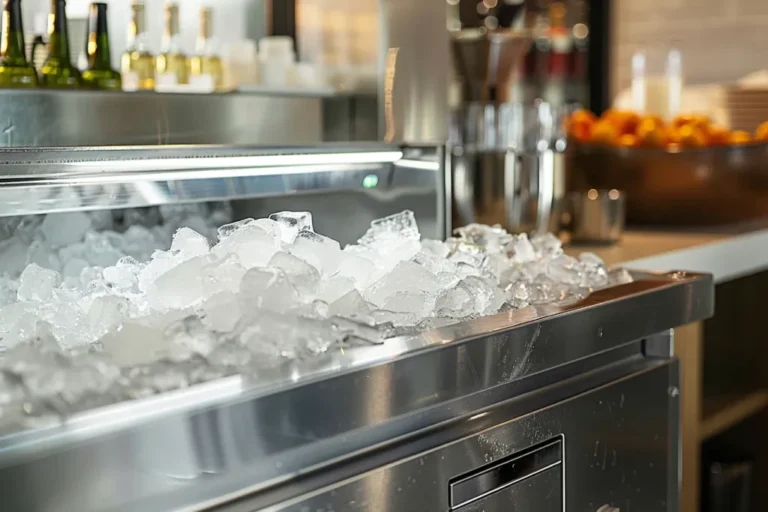An ice-making machine is essential for any person who needs regular ice for drinks and parties or conducts business operations that require ice production. These machines carry out automatic ice production, which removes the manual labor required to store ice in trays. The guide provides guidelines to assist in finding optimal ice cube making machines on your beverage needs for personal use or commercial business requirements.
Why Buy an Ice-Making Machine?
An ice-making machine for sale provides several significant advantages to customers:
- The machine eliminates both the process of filling tray segments and the need to visit retail outlets to purchase ice blocks.
- A machine ensures there is constant access to ice that you need anytime for beverages and celebrations as well as food preservation.
- The quality of ice made by machines surpasses store-bought bags by being transparent and odorless.
- Ice machines allow you to select between cube-shaped, flake-shaped, and nugget-shaped forms depending on what you require.
Types of Ice Makers
1. Ice Cube Making Machines
Ice Cube machines remain the top choice for delivering marketable ice blocks for beverage consumption. They come in different sizes:
- Portable Countertop Models: Great for homes and small gatherings.
- Undercounter & Commercial Units: Ideal for bars, restaurants, and offices.
2. Flake Ice Machines
Best for:
- Healthcare (cooling therapy packs)
- Supermarkets (seafood and produce displays)
- Fishing industry (keeping catches fresh)
Flake ice has a flexible shape that effectively surrounds objects to provide quick cooling.
3. Nugget Ice Makers
“Nugget ice”, known in the market as “chewable ice”, adopts a soft texture which remains eligible for:
- Restaurants (for sodas and slushies)
- Hospitals represent ideal conditions for patients because this ice type remains easily chewable.
- The home environment makes optimal use of this machine for creating both smoothies and cocktails.
Key Features to Look For
Buyers of ice-making machines should pay attention to three critical factors:
- The capacity of residential ice machines ranges from twenty to fifty pounds each day. In comparison, professional-grade units generate more than one hundred pounds.
- The capacity of storage bins determines how much ice they hold, but they require additional space.
- Consider only those ice makers that carry the ENERGY STAR certification because they help users reduce their electricity usage.
- The automatic cleaning function enables less manual maintenance of the ice machine, leading to a fresh-tasting result.
- Home-friendly ice machine models should produce less than 50 dB of sound.
Where to Use an Ice Maker
- Home: The home unit serves perfectly for party events and bar consumption and as your primary kitchen ice supply.
- Bars & Cafés: Ensures a steady supply of cocktails and cold brews.
- Hotels and Restaurants: The hospitality sector requires high-capacity ice makers because of their substantial demand.
- Medical Facilities: Provides hygienic ice for patients and treatments.
Final Tips Before Buying
- Check the dimensions of your available space before buying to verify the machine will fit its installation area.
- Some ice-making machines require direct water feed installation.
- Reviews help you identify durable products that last for an extended period.
Conclusion
A smart purchase exists for ice cube-making machines for domestic and commercial use. Among the variety of sizes and types on the market, you will easily discover the perfect model that matches your requirements. Multiple users can access fresh ice by selecting the suitable ice-making machine for sale depending on their drink, food preparation, or medical applications.


Comments are closed.